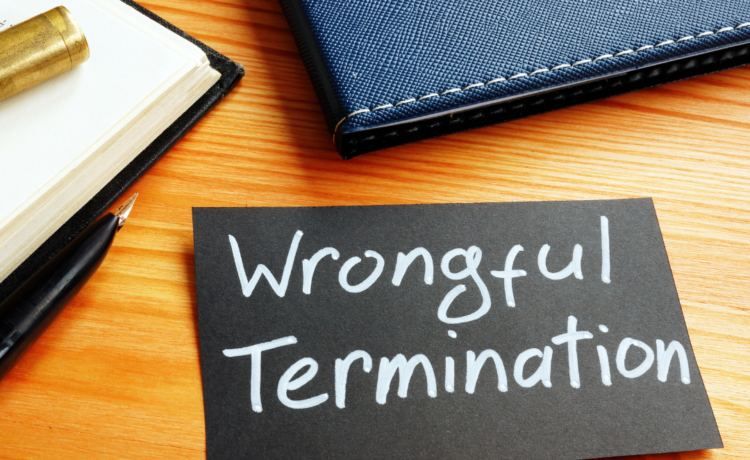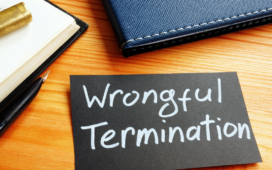Losing a job is never easy, but it can feel especially unjust when the termination seems unfair or suspicious. In Maryland, as in most states, employment is generally considered “at-will.” This means that an employer can terminate an employee at any time, for any reason—or for no reason at all—as long as that reason isn’t illegal. However, there are important exceptions to this rule. Understanding what qualifies as wrongful termination under Maryland law can help you determine whether you have a legitimate legal claim.
What Is At-Will Employment?
At-will employment is the default in Maryland. This means an employer does not need to justify firing an employee unless a specific contract, agreement, or law applies. Similarly, employees are free to leave their jobs at any time without penalty.
However, just because an employer can fire someone “for any reason” doesn’t mean they can fire someone for an illegal reason. When an employer’s reason for termination violates federal or state laws, that firing is considered wrongful and may provide grounds for legal action.
What Qualifies as Wrongful Termination?
There are several key circumstances under which a termination may be considered wrongful under Maryland and federal law:
1. Discrimination
An employer cannot fire someone based on protected characteristics such as:
- Race
- Color
- National origin
- Religion
- Sex (including pregnancy, sexual orientation, and gender identity)
- Age (40 and over)
- Disability
- Genetic information
These protections come from both federal laws (like Title VII of the Civil Rights Act, the ADA, and the ADEA) and Maryland’s anti-discrimination laws. If you believe you were terminated because of one of these protected characteristics, you may have a valid wrongful termination claim.
2. Retaliation
Employees have the right to report illegal activities or participate in investigations without fear of losing their job. If you were fired after:
- Reporting harassment or discrimination
- Filing a complaint with HR or a government agency
- Participating in a workplace investigation
- Reporting wage violations or unsafe working conditions
…you may have been wrongfully terminated for retaliation. This type of firing is illegal under both federal and Maryland laws.
3. Violation of Employment Contract
If you have an employment contract—whether written, oral, or implied—that outlines the conditions under which you can be terminated, your employer must honor that agreement. If you’re fired in violation of those terms, it could be a breach of contract and grounds for a wrongful termination claim.
4. Refusal to Perform Illegal Acts
Maryland courts recognize a public policy exception to at-will employment. This means that if an employer fires you for refusing to do something illegal—like falsifying records or violating safety laws—your termination could be considered wrongful.
5. Whistleblower Protections
Maryland has specific whistleblower protections, particularly for public employees and employees in certain industries. If you were terminated after exposing illegal conduct by your employer, you may be protected under the Maryland Whistleblower Protection Act or other federal laws.
What Doesn’t Qualify as Wrongful Termination?
While wrongful termination laws protect employees in specific circumstances, many firings—though unfair or harsh—may not be illegal. Here are a few situations that, while frustrating, usually don’t amount to wrongful termination:
- Fired without notice: Maryland law does not require employers to give notice unless specified in a contract.
- Personality conflicts: Being let go because a manager dislikes you is typically legal, unless discrimination or retaliation is involved.
- Layoffs or downsizing: Companies can eliminate positions for economic reasons as long as the decision isn’t discriminatory.
- Poor performance: Even if you disagree with your evaluation, employers have the right to fire employees for performance reasons.
If none of the exceptions to at-will employment apply, a termination may not qualify as “wrongful” in the legal sense—even if it feels unfair.
Steps to Take If You Suspect Wrongful Termination
If you believe your termination was unlawful, consider taking the following steps:
- Document Everything
Keep copies of any emails, performance reviews, complaints, or communications related to your termination. A clear paper trail can support your claim. - File a Complaint with the EEOC or Maryland Commission on Civil Rights
If you believe discrimination or retaliation played a role in your firing, you may need to file a charge with one of these agencies before pursuing a lawsuit. - Consult an Employment Attorney
Employment laws can be complex, and an experienced attorney can evaluate your situation, explain your rights, and help you determine the best course of action.
Final Thoughts
While Maryland’s at-will employment doctrine gives employers broad discretion to terminate workers, that discretion has limits. If your firing involved discrimination, retaliation, breach of contract, or a violation of public policy, it may qualify as wrongful termination under the law.
Understanding your rights is the first step toward protecting them. If you suspect your termination was unlawful, don’t ignore your instincts—explore your legal options and take action where appropriate. We recommend wrongful termination lawyers maryland.












